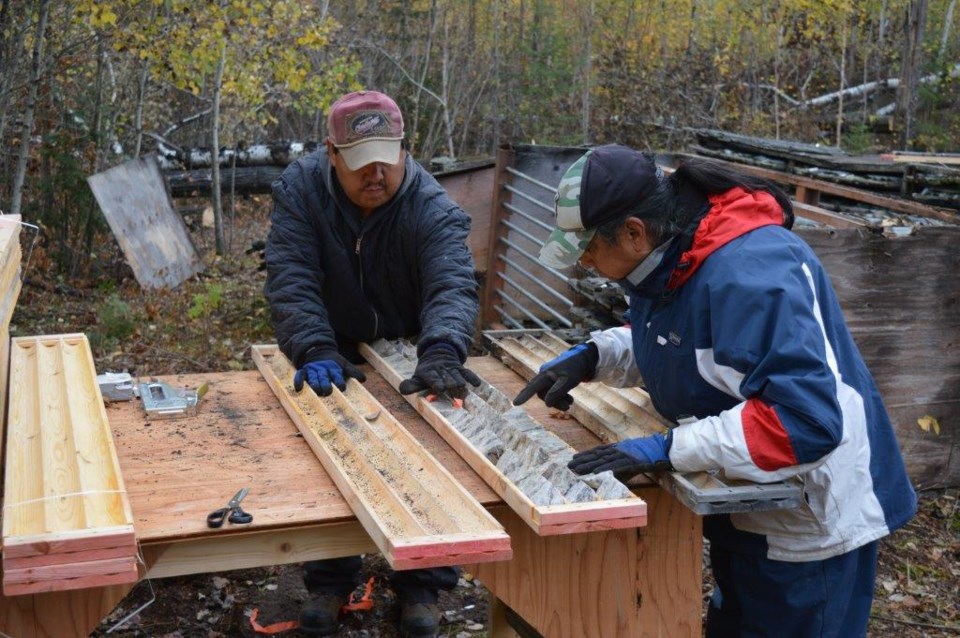The burgeoning electric car battery market has compelled a northwestern Ontario lithium mine developer to take a second hard look at its property near Kenora.
Last year’s release of a preliminary economic assessment (PEA) by Toronto’s Avalon Advanced Materials showed good potential to recover lithium material at its Separation Rapids project that would be suitable for the rechargeable battery market.
“It’s kind of opened our eyes to what other possibilities there are,” said company president-CEO Don Bubar.
“The more work we do, the more we keep discovering other possibilities.”
A planned 2,000-metre summer exploration drilling program at their project, 70 kilometres north of Kenora, was focused on getting a better geological interpretation of the property.
Their previous exploration work focused on recovering petalite, the main mineral in their resource, but the high-purity deposit could produce a wider array of lithium-based products serving multiple markets.
Bubar said the upcoming field work was “a step back” to reassess the whole project. That includes examining the potential for other byproducts using the feldspar, silica, rubidium, cesium and tantalum found on the property.
“You have to be pretty adaptable and keep your ear to the ground on what’s happening and the innovation in new technology that’s being created in the battery space,” said Bubar.
When Avalon staked the property 20 years ago, their intention was to prove up a resource that would serve glass and ceramic manufacturers.
The new buzz around electric vehicles has rodeo-clowned the attention of many lithium producers toward servicing that growing manufacturing sector. The battery market takes up 39 per cent of U.S. lithium demand.
But the glass and ceramics industry still takes up a sizeable 30 per cent chunk of the pie, according to the U.S. Geological Survey.
“The glass industry is still a big consumer of lithium,” said Bubar. “It’s just not as high profile. The battery industry has stolen the headlines.”
Lithium demand is expected to double over the next five to 10 years. It’s creating some security-of-supply issues for glass producers and some low-hanging fruit for Avalon.
“People tend to think of glass as old technology,” Bubar observes. “It’s not. There’s a huge amount of innovation happening in the glass industry too.”
Glassmakers are constantly developing stronger and lighter glass products, such as Corning’s Gorilla Glass.
The company’s development plan is to start small and scale up.
Avalon’s PEA imagined a $514-million open-pit mine with an average annual production of 14,600 tonnes of lithium hydroxide – battery-grade lithium – over 10 years.
The development model calls for a crushing and flotation plant to be built on-site.
The petalite concentrate would be trucked to a proposed processing plant at a yet-to-be-named site near Kenora.
The initial pilot-scale plant would provide samples to potential customers, beginning with the glass industry first, then the battery market.
“It makes sense for a business model in managing the overall investment risk,” said Bubar.
Catering to the glass industry doesn’t require as much processing.
Years ago, Avalon had developed its own proprietary process for concentrating petalite for that traditional market.
The so-called technical grade lithium is preferred by the glass industry.
Selling to battery companies requires a second processing step to make a derivative material called lithium hydroxide.
Bubar said they’re still deciding whether to make it themselves or to sell material to have someone else do it.
Australia’s Lepidico may factor into that decision.
Last February, Avalon signed a non-binding agreement with Lepidico to tentatively sell them 15,000 tonnes of material to run through their patented hydrometallurgical technology.
On the project financing front, Bubar finds that investors’ understanding of lithium has matured because of the electric vehicle movement. Getting clear expressions of interest from customers would allow Avalon to access the capital needed to build that pilot plant.
Bubar expects to announce more development-related milestones in the next few months.




